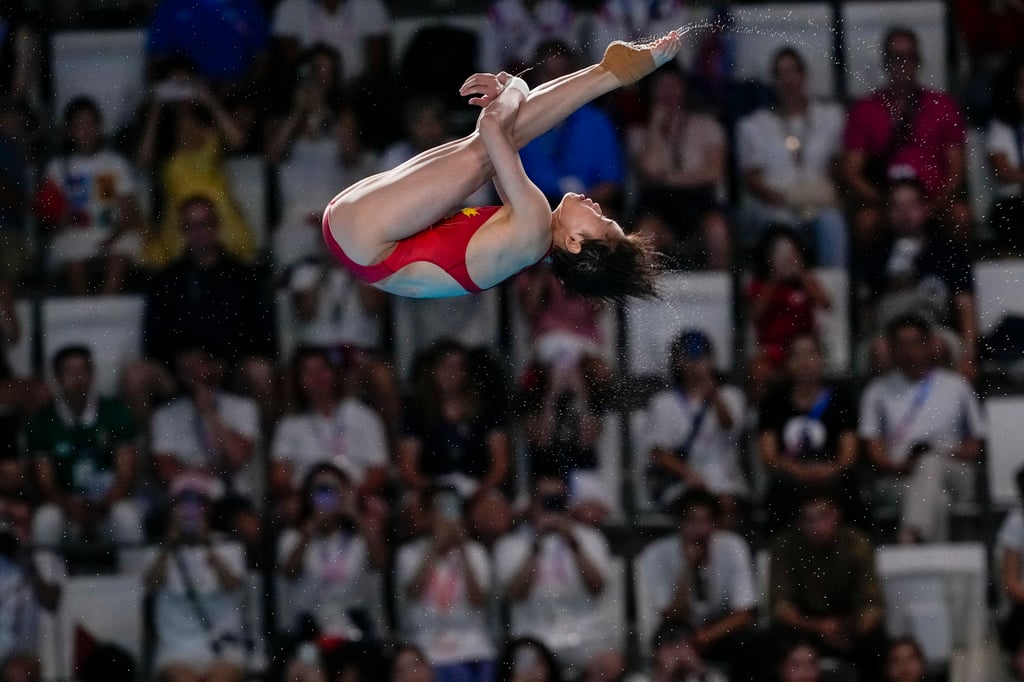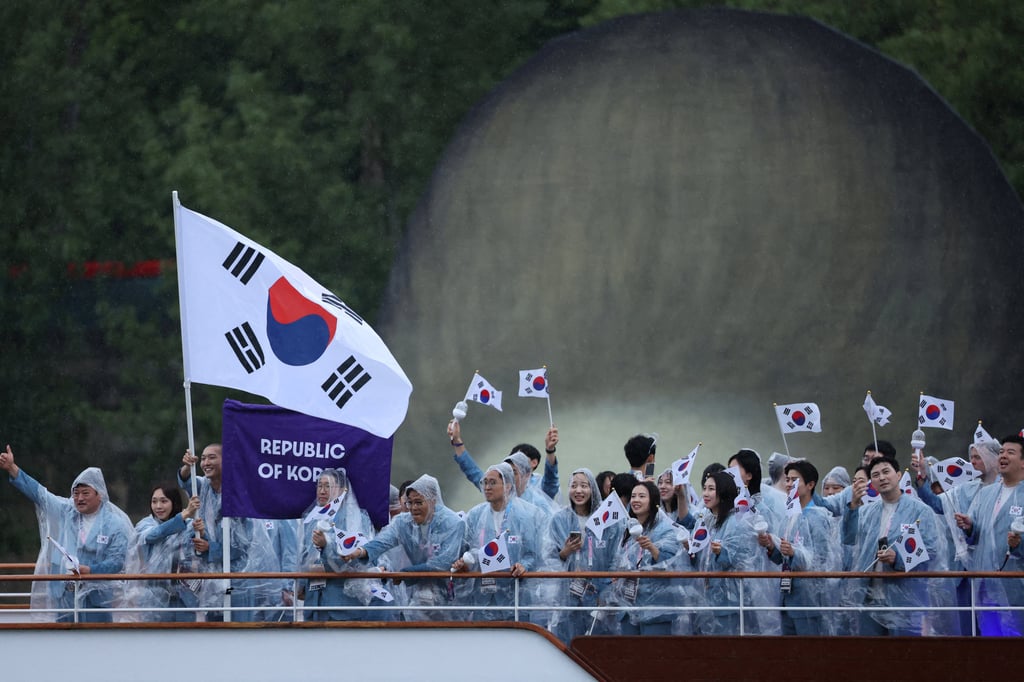The mispronunciations occurred even though Wang had earlier recorded the pronunciation of his name – which sounds similar to “Wang Chu-chin” – and which can be found on the Games’ website.
The same happened to his table tennis compatriot Fan Zhendong who was called “Pang Cheng-tong”, which amused many Chinese netizens as it sounded like “fat like a barrel” in Chinese.
Female table tennis player Wang Manyu too had her name mangled – she was referred to as “huang menyu” which sounded like “braised fish” in Chinese.

Other names mispronounced include springboard diver Quan Hongchan, where Quan (pronounced “chuen”) was at least consistently pronounced as “Kuan”.
Chinese names have, for the longest time, been mispronounced by non-Chinese speakers who struggle particularly with names containing the letters “z”, “x” or “q” and when these have morphed to become “zh”,“xu”, “xun”, “qu”, “qiu” or “qun”.
I dread to think how the French announcers would pronounce the name “Zhuge Xuequn”.
In defence of “Quan” being pronounced “Kuan”, a non-Chinese friend asked: isn’t Singapore swimmer Quah Ting Wen’s family name pronounced “Kwa” or “Kuah”?
“I didn’t make up the rules,” I said, shrugging.
Mainland Chinese names follow the standardised pinyin system, whereas some names elsewhere also follow the Wade-Giles style, another romanisation system for Mandarin Chinese. In my view, the latter is less consistent, even somewhat capricious, than the former.
While Quah’s family name is romanised in non-standard format – otherwise “Ke” in pinyin or “Ko” in Wade-Giles – her personal name is in pinyin.
The mispronounced Chinese names out there – not just at the Olympics – are often sources of amusement, particularly for mainland Chinese, many of whom believe that their language is a difficult one to learn.

But wait a minute.
Many mainland Chinese too were momentarily confused after Hong Kong fencer Vivian Kong Man-wai garnered a gold medal at the Games, as “Kong” – or “Jiang” in Mandarin – sounded like the pinyin version of the family name “孔”.
“So why is she not a ‘Kong’ as in ‘Kong Fuzi’ [Confucius]?” some mainland Chinese users queried on Chinese social media.
And what about Hong Kong sprinter Felix Diu Chun-hei, whose family name in Cantonese is synonymous with a vulgar profanity and hence unprintable in a family newspaper?
None of the mainland Chinese friends I asked knew the meaning of “Diu” (or “Diao” in pinyin) in Cantonese, nor the minor commotion the name has caused in Cantonese-speaking regions around the world.
Another mainland Chinese friend could not understand why the “Zii” in Malaysian badminton player Lee Zii Jia’s name had to be spelled with two “i”s instead of one. “If ‘Jia’ is in pinyin, why isn’t ‘Zii’ also in pinyin?” she asked.
This northern Chinese friend also could not relate when I told her I was teased in school while growing up in Singapore as my last name Siow (“Xiao” in pinyin) sounded like “mad” or “crazy” in the southern Hokkien or Fujian dialect.

As a celebration of diversity, inclusion and respect, the Paris Olympics can certainly do better in making sure that all names – not just Chinese – are correctly pronounced.
It is after all an international platform where athletes perform at unrivalled levels, and not a local high school sports tournament.
Gaffes such as getting names wrong – not just Chinese but also Korean names, and mistaking the South Korean team for North Korea, which occurred during this year’s Games – should not be easily overlooked or even happen in the first place.
It is not rocket science to find out the correct pronunciations and say them right. If need be, athletes’ names can be pre-recorded and played back during ceremonies, where their names do not have to be subjected to the whims of the persons making the announcements.
Why dilute the athletes’ joy and triumphs in winning a medal if they have to pause to recognise if their names – or someone else’s – have been called?
Or worse, to realise their names – when mispronounced – sounded like a common braised Chinese seafood dish?

